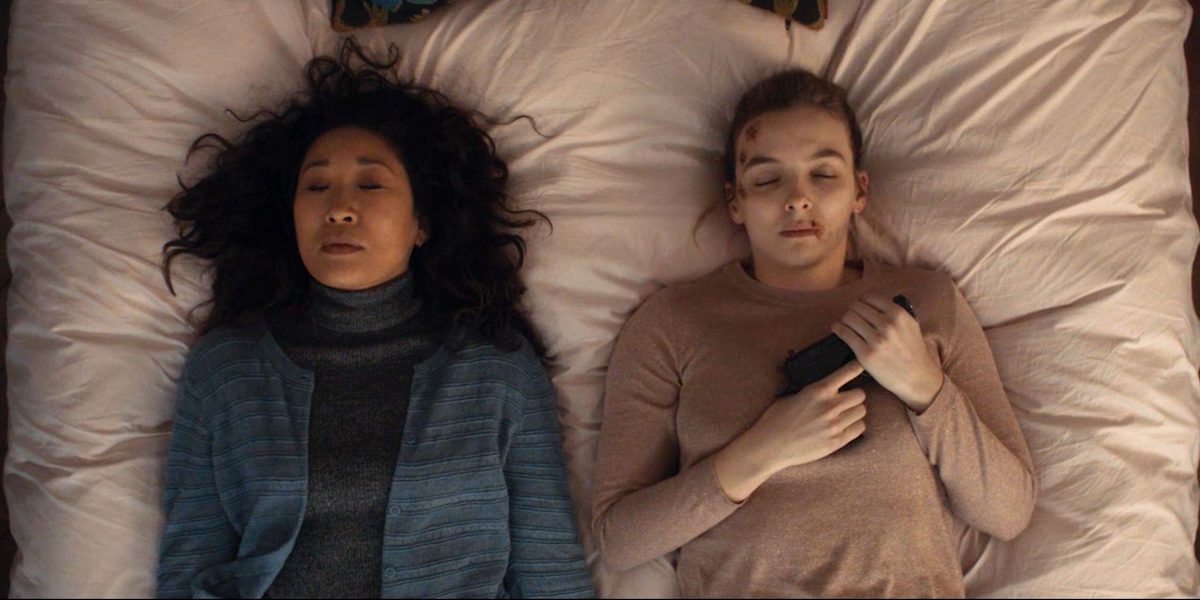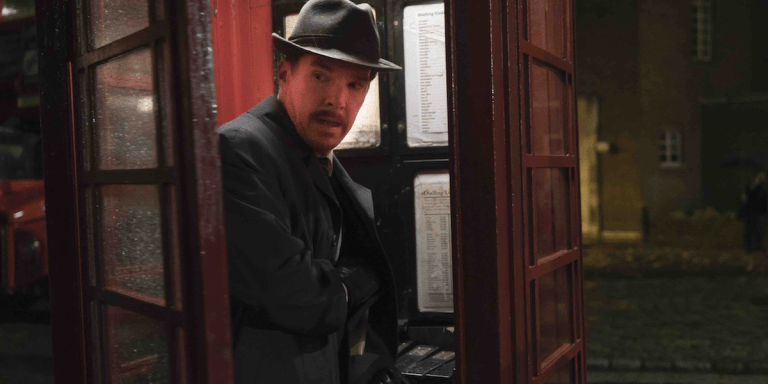Killing Eve Remains Stylish and Deadly in Its Final Season

For three seasons of Killing Eve (based on the Villanelle novels by Luke Jennings), MI5 agent Eve Polastri (Sandra Oh) and the professional assassin known as Villanelle (Jodie Comer) have been playing out a very dangerous form of flirting. While Eve ostensibly works to bring international criminals to justice, she’s become so emotionally entangled with Villanelle that it’s tough to see how she’s achieving any positive gains for peace and security. And Villanelle, whose entire job depends on being ruthless, efficient, and untraceable, has left a careless swath of dead bodies along her trail of pursuing Eve’s affections.
As the fourth and final season of Killing Eve begins, both main characters are fully ousted from their respective organizations. Eve is working private security, teamed up with a sort of colleague-with-benefits who’s very supportive of her extracurricular efforts to expose and destroy the sinister organization known as the Twelve. Villanelle is undergoing her latest attempt at reforming, this time by becoming a born-again Christian. She’s convinced that if she can only prove to Eve that she’s on a path to enlightenment, they can finally be together.
But neither character can really change. Eve still recklessly dives into ill-advised operations in her pursuit of the truth, although at least she’s gotten better at it since her days working as a deskbound analyst in the first season. And Villanelle can’t stop killing people, even if she turns to religion or therapy, which she gives a try in the season’s third episode. This is Killing Eve’s final season, so eventually these two characters will come to some kind of mutual understanding, but if new head writer Laura Neal is going to have them end up together, as many fans want, she isn’t going to make it easy.
The relationship dynamic between Eve and Villanelle has gotten a little repetitive as they’ve been kept apart by various external and internal factors for three seasons, but Oh and Comer still have fabulous chemistry, and Neal avoids some of her predecessors’ missteps by not keeping the characters apart for too long. Oh also has pretty great chemistry with Robert Gilbert as her new espionage and sexual partner Yusuf, who makes for a fun addition to the cast. Camille Cottin, who had a supporting role in the third season as assassin trainer Helene, gets a more prominent role as a potential adversary and/or ally for Eve in her efforts to bring down the Twelve.
Fiona Shaw, as Eve’s amoral former supervisor Carolyn Martens, and Kim Bodnia, as Villanelle’s morbidly jovial former handler Konstantin Vasiliev, are also still around, although Konstantin doesn’t have much to do in the first three episodes. Shaw gets more substantial screen time, as the embittered Carolyn fully embraces her position working both sides of the spy game. Like Eve, she wants revenge against the Twelve for the murder of her son (and Eve’s colleague) Kenny, which was a major focus of the third season.
The plot of Killing Eve often seems circuitous, but the fourth season retains the show’s other strengths, including stylish visuals, striking costumes, sharp dialogue, and a playful approach to both violence and sexuality—sometimes mixed together. Neal brings back some minor characters from previous seasons in an effort to tie the whole messy narrative together, and while that may not be entirely successful, the sheer joy of watching these sexy sociopaths toy with each other remains just as potent.
Read the Killing Eve Books
By clicking 'Sign Up,' I acknowledge that I have read and agree to Hachette Book Group’s Privacy Policy and Terms of Use
What to Read Next
Josh Bell is a freelance writer and movie/TV critic based in Las Vegas. He’s the former film editor of Las Vegas Weekly and the former TV comedies guide for About.com. He has written about movies, TV, and pop culture for Syfy Wire, Polygon, CBR, Inverse, Crooked Marquee, and more. With comedian Jason Harris, he co-hosts the podcast Awesome Movie Year.








